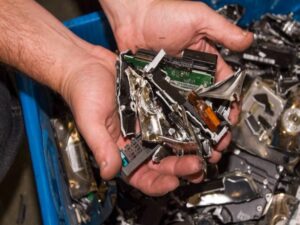In parallel developments, the Gauteng Department of e-Government (GDeG) has disclosed that the country generates a staggering 360,000 tons of e-waste annually, with the province contributing a significant 55% share to this volume.
“Consumers must receive better education on the proper disposal of their appliances to avert an impending environmental crisis,” emphasized Patricia Schröder, spokesperson for Circular Energy, the official producer responsibility organization (PRO) registered under the Department of Forestry, Fisheries, and the Environment (DFFE) for efficient and ethical electronic waste management.
WHO’s findings underscore that individual in low- and middle-income households are particularly at risk from e-waste toxins due to the absence of regulations governing appropriate e-waste recycling and disposal. This highlights the critical importance of the new Extended Producer Responsibility (EPR) regulation, instituted under the National Environmental Management: Waste Act of 2008. This regulation mandates ethical recycling and disposal practices for importers and manufacturers, aimed at safeguarding the environment.
Nevertheless, the effectiveness of this initiative could be severely compromised if consumers remain uninformed about the proper disposal of their old appliances.
Furthermore, Schröder cautioned the public against companies advocating for the disposal of appliances at “smashing centers” for recreational purposes or anger management, as this practice is not only unsafe but also illegal under environmental regulations.
“These appliances necessitate specialized handling, recycling, and treatment by appropriately qualified individuals within controlled environments,” she stressed. In addition, WHO has emphasized the grave consequences of unethical and substandard disposal and recycling methods employed in e-waste sites, including scavenging, acid baths, acid leaching, and the stripping and shredding of plastic coatings. Among these methods, open burning and heating pose the greatest hazards to both the environment and human health. Such hazardous activities expose children and pregnant women to a range of adverse outcomes, including neonatal complications like stillbirths and premature births, neurodevelopmental issues associated with lead exposure from subpar e-waste recycling, and respiratory problems, among others. These stark realities underscore the urgent need for comprehensive measures to address the burgeoning e-waste crisis and protect vulnerable populations from its detrimental effects.






